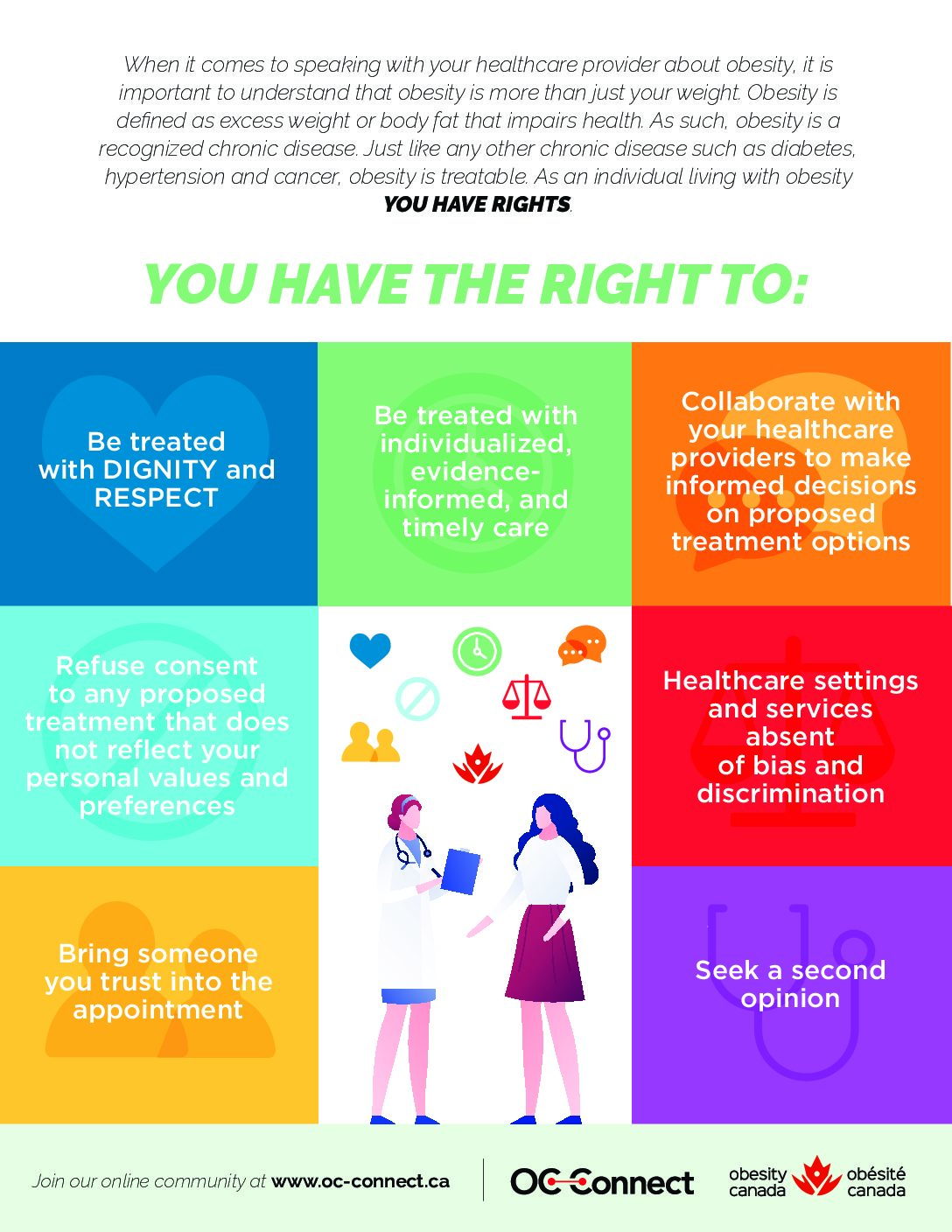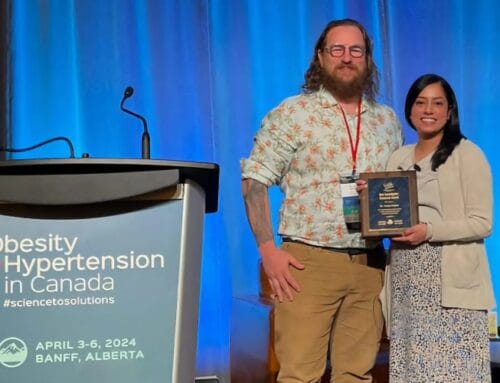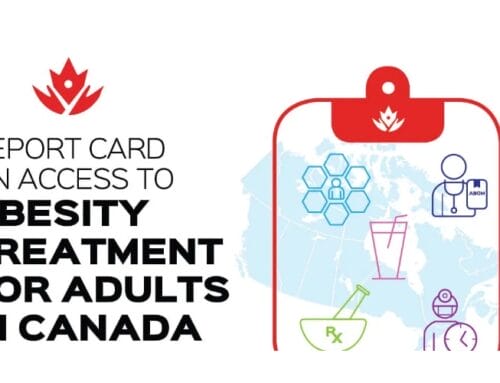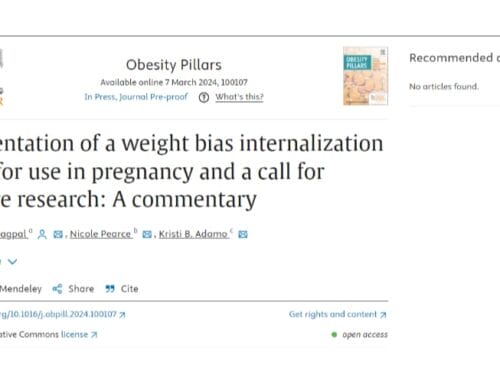Today’s blog is brought to you by Dr. Ian Patton, Director of Advocacy and Public Engagement at Obesity Canada.
As a patient advocate, there are a number of things I work towards improving for Canadians living with obesity. Obvious things like improving access to care and reducing weight bias are common targets of our efforts. Each of those topics are quite daunting to unpack and each could easily be a full time job to focus on. There is however, nothing that gets me as passionate to advocate for than when people share how they have been mistreated or dismissed by our healthcare system because of their size or weight. When you talk to individuals who live with obesity, it is clear, these negative experiences are commonplace, almost the norm.
It is morally and ethically wrong for people to be treated in this way, but more than that, in many cases it is an infringement on the individual’s rights.
There are a few factors that contribute to these experiences. In some cases, it could be that the health professional is just a jerk and is lacking some important people skills, but given the prevalence of these experiences, I have a hard time thinking that there are THAT many “bad eggs”. Most health professionals get into the profession by helping people and making a difference as a motivator and most sincerely want to do good.
I believe strongly that much of the problem stems from a lack of understanding of obesity as a chronic disease and rather is being viewed as a personal failing by everyone involved, including the health professionals. While we have the science and the evidence that obesity is a complex chronic disease, that knowledge has not trickled down to the masses of health professionals who did not receive any significant training on obesity. We are essentially asking a system to help with something that they do not understand. Without formal training, you can imagine that many health professionals are left to manage their patients living with obesity shaped by the same biases and misinformation about “eat less and move more” that society at large is exposed to. We can fix that with aggressive education and professional development for health professionals, but this takes time.
The other part of the issue is the internalized thoughts and beliefs of people with obesity. The belief that we are somehow not worthy of help or that we have done this to ourselves and we deserve the shame and blame we are given. Again these are shaped by the understanding society has of obesity and the fact that it is not fully recognized as a chronic disease.
Now, tackling the internalized beliefs and sifting the understanding of obesity as a chronic disease is no simple task, however, even if these beliefs were true (they are not), we are still humans who deserve dignity and respect and we deserve fair, equitable access to healthcare. It is important to understand what your rights are and to speak up if they are being infringed on.
That is why we created this infographic on knowing your rights when speaking to your health professional about obesity. Regardless of anyone’s opinion or belief about obesity, know your rights and be empowered to ask that they be respected.
You have the right to:
- Be treated with dignity and respect
- Be treated with individualized, evidence-informed and timely care
- Collaborate with your healthcare providers to make informed decisions on proposed treatment options
- Refuse consent to any proposed treatment that does not reflect your personal values and preferences
- Healthcare settings and services absent of bias and discrimination
- Bring someone you trust into the appointment
- Seek a second opinion
Everyone deserves access to the same quality and access to care. Period. Full stop.
Recognize when that is not the case and call it out when you can.






